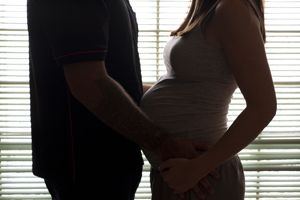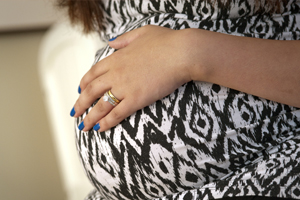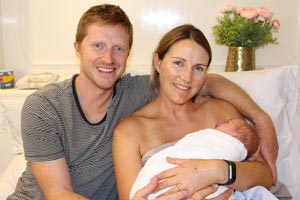Home birth
What is a home birth?
 Home birth is a planned event where a woman chooses to give birth at home, with care provided by a midwife. Under the Community Midwifery Program (CMP), CMP midwives will provide you care during your pregnancy within the community at one of our community clinics. When you go into labour your midwives will come to your home to attend to you through your labour and birth. After the birth CMP midwives will continue to care for you for up to two weeks postnatally.
Home birth is a planned event where a woman chooses to give birth at home, with care provided by a midwife. Under the Community Midwifery Program (CMP), CMP midwives will provide you care during your pregnancy within the community at one of our community clinics. When you go into labour your midwives will come to your home to attend to you through your labour and birth. After the birth CMP midwives will continue to care for you for up to two weeks postnatally.
Am I eligible for a home birth?
To be eligible you must:
- live inside the geographical boundaries
- be 18 years or over
- not previously have had a caesarean section
- not have a baby with a breech presentation at term (37 weeks)
- be pregnant with only one baby
- not have a significant pre-existing medical and/or obstetric history such as diabetes or hypertension
- not have had a child with significant neonatal problems
- not have any condition affecting either mother or baby that develops during pregnancy and increases the level of risk whereby home birthing is no longer considered to be a safe option
- be having baby number six or less
- apply to the CMP before 35 weeks gestation
- have a pre-pregnancy BMI between 18 and 35
- have a working phone (land line or adequate coverage).
Please see the Policy for Public Home Birth Program (external site), more details on the inclusion / exclusion criteria can be found on the CMP Inclusion criteria clinical guidelines (PDF).
Why do I need a support hospital?
Most women on the CMP are paper booked, that is your file is reviewed by a Midwife or Obstetrician. You are not required to attend an appointment unless there is a need for a referral or consultation under the ACM Referral and Consultation Guidelines, your midwife will arrange this appointment for you. This collaborative approach helps ensure the best possible care for you and your baby. The obstetrician will explain his/her role should you require transfer to hospital care at any stage and may also discuss relevant tests with you at this appointment.

Is my house suitable for a home birth?
Most people’s homes are suitable for birthing in. You need access to a toilet, running water, electricity and a phone. Heaters in the winter months are essential and fans / air conditioning for the very hot summer months will help ensure you and your baby maintain a comfortable temperature. You will also need to ensure access to your house for vehicles and an ambulance if required. Please discuss your individual needs with your midwife.
How many midwives will be at my birth?
Once your labour has established, your midwife will provide continuous one-to-one professional and emotional support and ongoing assessment of you and your baby’s condition throughout the birth process. This will include regularly listening to your baby’s heartbeat and monitoring your blood pressure, temperature, pulse and progress of labour. As birth is nearing a second midwife will be present in the home with you. It is the midwife’s role to ensure the safety and wellbeing of both yourself and your baby, they may be required to discuss alternative options such as transfer to hospital. Any changes to your plan of care will be discussed openly with you and your partner so that you can make a fully informed decision. However, it is important to remain flexible and be guided by your midwife’s expertise.
What will my midwife bring to the birth?
- A homebirth box with all the equipment he / she will need for the birth
- Medication for the management of the birth of your placenta and to help control any bleeding (if required)
- Resuscitation equipment, including oxygen.
Your midwife may require some assistance from other members of your support team to carry the equipment into your home.
What happens if there is a problem in labour or immediately after?
Should a problem arise an ambulance will be called, and you will be transferred to your supporting hospital. All CMP midwives have the appropriate training and experience to identify a potential problem and manage emergencies and, if needed, can quickly arrange a calm transfer to hospital. In the unlikely event of an emergency your midwife has the necessary skills and training to provide immediate response to the situation whilst waiting for an ambulance to transfer you to hospital. CMP recommend that all clients planning a birth at home arrange adequate ambulance cover in case transfer to hospital is required.
What happens after the birth?

Your midwife will usually stay approximately two hours after the birth. They usually return within 12 to 24hrs and will continue to provide postnatal support at regular intervals until baby is up to two weeks old.
Will my baby be checked by a doctor?
The CMP recommend you have your baby checked by your GP within one week of the birth. This check will include checking for congenital hip dysplasia and congenital heart murmurs, along with many other conditions. Your midwives are not trained to undertake this examination.

